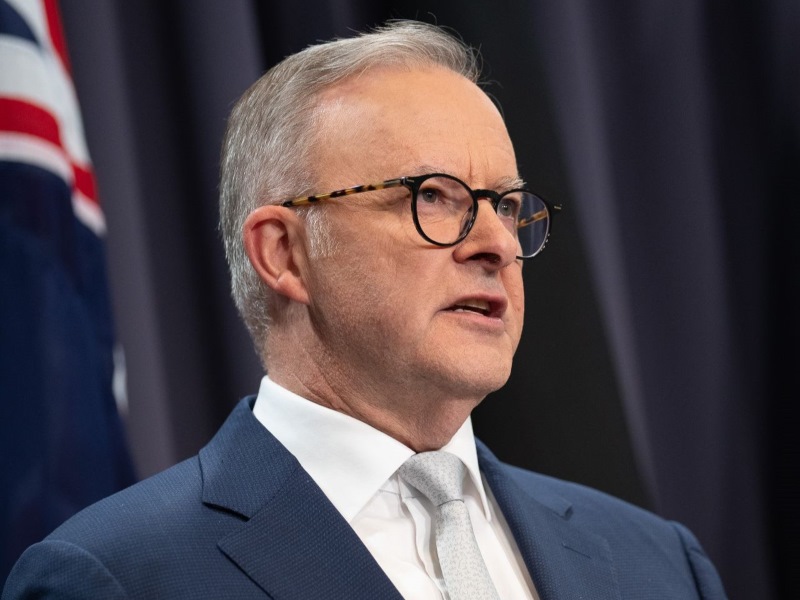Now, Australia Joins China To Strengthen AI Ties To Boost Tourism and Trade: Know The Growing Role of AI in Global Travel Deals And It's Massive Impact On Tourism - Travel And Tour World
Monday, July 7, 2025

With Australian Prime Minister Anthony Albanese preparing for his second Chinese official visit, there is greater optimism about fresh synergies that will reframe the future of global trade as well as tourism. At the heart of the issue lies the deployment of Artificial Intelligence (AI), which evermore becomes a significant contributor in making trade and travel agreements between nations firmer and smoother. Since Beijing desires greater synergies in the field of AI, health, and clean energy, it becomes ever-clearer that the implications for this advancement will extend far deeper than in regards to trade agreements—they can significantly shape global tourism between China and Australia in specific ways.
This rising Australian and Chinese cooperation in artificial intelligence can revolutionize the traveling industry through the increase in interactive and personalized cross-border tourism pacts. Technologies in the traveling industry based on AI are currently used in plotting better routes for airlines, optimizing visa processes, creating personalized traveling timetables, and offering real-time traveling information, thus easing the process for tourists. As two of the world’s largest economies, Australia and China are as well-positioned as they can be in harnessing the technologies in fostering bilateral tourism and creating better trade routes.
Artificial Intelligence is already transforming the way countries engage with one another in the realm of tourism. For example, AI-powered systems are increasingly being used by airlines to offer more customized services, such as personalizing in-flight experiences, offering real-time translation services, and optimizing flight schedules based on demand. Additionally, AI has the potential to streamline visa processing, making it easier for tourists to obtain visas through automated systems that reduce wait times and improve accuracy.
The ability of AI to enhance travel experiences extends beyond just logistics and operations. By harnessing data collected from global travelers, AI can help governments and travel companies tailor their services to meet specific demands, creating more targeted tourism campaigns. AI’s ability to analyze vast amounts of data in real time enables the development of travel packages that meet the preferences of various demographics, which is crucial for growing tourism between countries.
For Australia and China, the incorporation of AI into their trade agreements offers tremendous benefits. For example, AI can help the two nations develop more effective ways to promote each other’s countries as desirable travel destinations. With China being one of the largest outbound tourist markets in the world, the Chinese government has already made substantial efforts to streamline travel processes for Chinese citizens, making it easier for them to travel to other countries, including Australia. On the flip side, AI technology can also assist Australian tourism operators in attracting Chinese tourists by creating personalized experiences that align with their preferences.
Since the signing of the China-Australia Free Trade Agreement (ChAFTA) in 2015, tourism between the two nations has experienced significant growth. China has consistently been one of Australia’s top tourist markets, with thousands of Chinese visitors arriving annually to experience Australian culture, natural beauty, and world-class attractions. The tourism boom is fueled by increasing disposable income in China, a growing middle class, and a desire to explore international destinations.
As China and Australia further strengthen their AI collaboration, the tourism sector stands to benefit even more. AI can help both governments streamline the visa application process, making it more accessible for Chinese tourists to visit Australia. AI-powered systems can also assist in providing real-time updates on flight schedules, local events, and even personalized recommendations for Chinese tourists, ensuring a smooth and enjoyable experience while they explore Australia.
Moreover, AI can assist in solving key logistical challenges that often impede international tourism. For example, AI can play a significant role in improving airport efficiency by streamlining baggage handling, optimizing check-in processes, and enhancing the security screening experience for passengers. As tourism between Australia and China continues to grow, these innovations in AI-powered services will help ensure that travelers enjoy a seamless journey from departure to arrival, which in turn will enhance their overall travel experience.
The key to expanding tourism between Australia and China lies in how both nations market their attractions and destinations. AI can play a pivotal role in creating highly targeted, data-driven tourism campaigns that speak directly to the interests of specific consumer groups. By analyzing data from past travel patterns, spending habits, and preferences, AI can help identify trends and design marketing strategies that resonate with potential tourists.
For instance, Chinese tourists may be more interested in exploring Australia’s unique natural environments, such as the Great Barrier Reef, Uluru, or Tasmania’s pristine wilderness. AI can help Australian tourism operators to create tailored marketing campaigns highlighting these specific experiences and suggest personalized travel itineraries based on individual interests. On the other hand, AI can also enable Australia to expand its appeal to younger Chinese tourists, who may be more interested in cosmopolitan experiences, cultural events, or culinary tours in cities like Melbourne and Sydney.
In addition to improving marketing strategies, AI can help track the effectiveness of these campaigns in real-time, allowing for adjustments to be made rapidly. This data-driven approach to tourism promotion ensures that both Australian and Chinese tourism agencies are able to focus their resources on the most promising initiatives and get the best return on investment.
Looking forward, the collaboration between Australian and Chinese researchers in AI has the potential to further solidify trade and tourism ties between the two countries. As AI technology continues to evolve, its integration into international travel systems will become even more seamless, offering travelers enhanced convenience, personalized services, and greater safety.
For example, AI could eventually make it possible for tourists to use facial recognition at immigration checkpoints, making passport control a faster and more secure process. This would significantly reduce wait times at airports, leading to more efficient and enjoyable travel experiences. Furthermore, AI could also play a role in managing tourism flows, preventing overcrowding at popular tourist attractions, and distributing visitors more evenly across different regions and cities.
In addition to improving the travel experience, AI can also contribute to sustainable tourism practices by helping countries manage their environmental impact. By using AI to optimize travel patterns, reduce carbon footprints, and encourage more eco-friendly travel choices, both Australia and China could lead the way in promoting responsible tourism.
As the Australia-China trade relationship continues to evolve, AI stands at the forefront of a new era of international travel. With its ability to enhance the travel experience, improve efficiency, and promote sustainability, AI has the potential to transform tourism and trade between the two nations. As both governments explore new ways to collaborate, the future of Australian and Chinese tourism looks brighter than ever, with AI serving as the driving force behind a more personalized, efficient, and sustainable global travel experience.
:
Australian Government Department of Foreign Affairs and Trade, China National Tourism Administration, Australian Tourism Export Council, Australian Trade and Investment Commission, China’s Ministry of Commerce
You may also like...
Diddy's Legal Troubles & Racketeering Trial

Music mogul Sean 'Diddy' Combs was acquitted of sex trafficking and racketeering charges but convicted on transportation...
Thomas Partey Faces Rape & Sexual Assault Charges

Former Arsenal midfielder Thomas Partey has been formally charged with multiple counts of rape and sexual assault by UK ...
Nigeria Universities Changes Admission Policies

JAMB has clarified its admission policies, rectifying a student's status, reiterating the necessity of its Central Admis...
Ghana's Economic Reforms & Gold Sector Initiatives

Ghana is undertaking a comprehensive economic overhaul with President John Dramani Mahama's 24-Hour Economy and Accelera...
WAFCON 2024 African Women's Football Tournament

The 2024 Women's Africa Cup of Nations opened with thrilling matches, seeing Nigeria's Super Falcons secure a dominant 3...
Emergence & Dynamics of Nigeria's ADC Coalition

A new opposition coalition, led by the African Democratic Congress (ADC), is emerging to challenge President Bola Ahmed ...
Demise of Olubadan of Ibadanland
Oba Owolabi Olakulehin, the 43rd Olubadan of Ibadanland, has died at 90, concluding a life of distinguished service in t...
Death of Nigerian Goalkeeping Legend Peter Rufai

Nigerian football mourns the death of legendary Super Eagles goalkeeper Peter Rufai, who passed away at 61. Known as 'Do...




